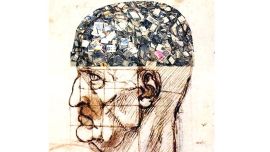With the first half of his presidential year already under his belt, President Javier Milei now prepares to move into the second half of the calendar year amid every indication of a whole new ball game. Equipped with a whole raft of emergency powers thanks to a strangely almost ignored article in the ‘Ley de Bases’ omnibus bill squeezing through the Senate earlier this month, he now has little excuse for a lack of results – far less blaming the “caste” with whom his government visibly wheeler-dealed for weeks in order to obtain that legislation.
Sharing a surname of equal length and beginning and ending with the same letters as Mauricio Macri, the resemblances do not end there with Milei facing the second half of a year exuding similar optimism – the only difference is that whereas Macri spoke of “a downpour of investments,” Milei now speaks of “an avalanche of investments.” While such hopes are grounded in Senate approval of a slightly diluted RIGI major investment incentive scheme, Milei will also need to end the capital and currency controls (removed by Macri in the very first week of his presidency) lying at the root of persistent exchange rate uncertainties. How can overseas investors be expected to take a chance when they observe the conduct of a long-established and highly competitive sector – last month almost 40 percent less of agricultural exports were cashed in than during the May of 2023 when Argentina was undergoing the worst drought of its history and governed by a centre-left administration perceived as hostile to the farming sector?
The International Monetary Fund (IMF), which can only smile on the fifth fiscal surplus running, takes a different view of export remuneration while also gloomier about the months ahead with their forecast of a 3.5 percent contraction for this year. That fiscal surplus also carries its price since it leads to prospective investors being offered modernisation via deregulation (with Federico Sturzenegger’s official entry into the government around the corner) rather than substantial tax cuts. Hopes of a consumer upturn in the second half of the year if not Milei’s “avalanche of investments” have some basis in more than halving inflation between April and May as well as a more generous pension updating mechanism but it could run counter to a deeper transformation of the Argentine economy.
Not only Sturzenegger is poised to enter the government but also Chilean economist José Luis Daza as the second-in-command of Economy Minister Luis Caputo and he might educate the government as to the Chilean experience. Chile’s remarkable export-led growth in recent decades dates from the year 1982 when the economy shrank 14 percent with unemployment doubling to 22 percent – a horrific slump which also had the effect of removing all deadwood from the Chilean economy at a stroke. Probably overkill and such a crash would be politically and socially unsustainable in Argentina (where nobody is yet forecasting a four-percent fall, never mind 14 percent) but it places some perspective on the costs of transformation with such deep and far from painless structural reforms as tax, labour law and pension system overhauls still lying ahead for an empowered Milei. Caputo has blithely consigned negative interest rates to the past but this is based on an exceptionally low May inflation of 4.2 percent achieved by delaying or decelerating the updating of public utility billing and transport fares.
Milei has now been delegated the emergency powers to move ahead with transformation but he cannot do it alone – indeed the concentration of central decision-making in the trio of the Milei brother and sister along with spin doctor Santiago Caputo makes for a major dislocation of the libertarian administration. There is finally an adult in the room with the promotion of Interior Minister Guillermo Francos to Cabinet chief three weeks ago – quite apart from his key role in driving the omnibus through the Senate, his meeting with Chinese Ambassador Wang Wei marks a steep ascent up the learning curve of pragmatism in opening up even a possibility of Milei visiting China in the light of his previous fervid disavowals. But at lower levels there is an alarming lack of expertise for implementing transformation with too many officials believing that successful government is all about having the right ideas rather than skills or tools.
Pragmatism is always welcome but blends too easily into the gradualism of Macri’s presidency – it remains to be seen whether the second half of the year is any better for Milei than for Macri.


















Comments